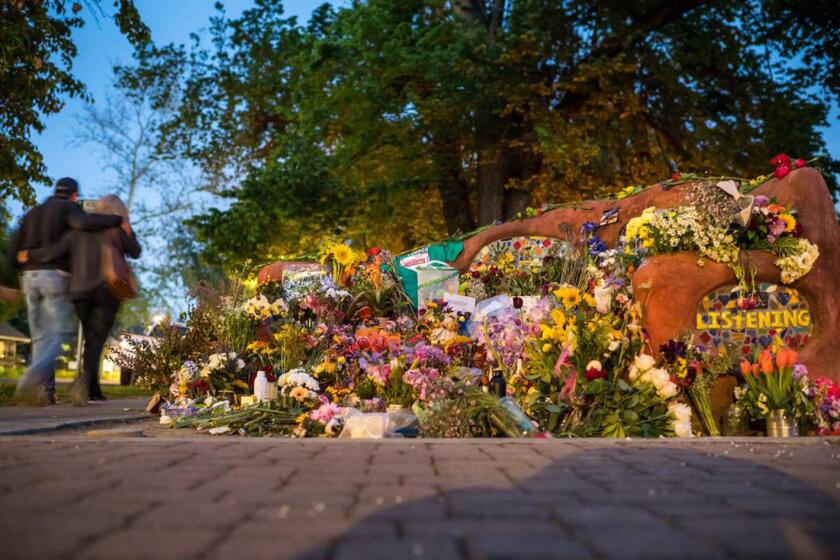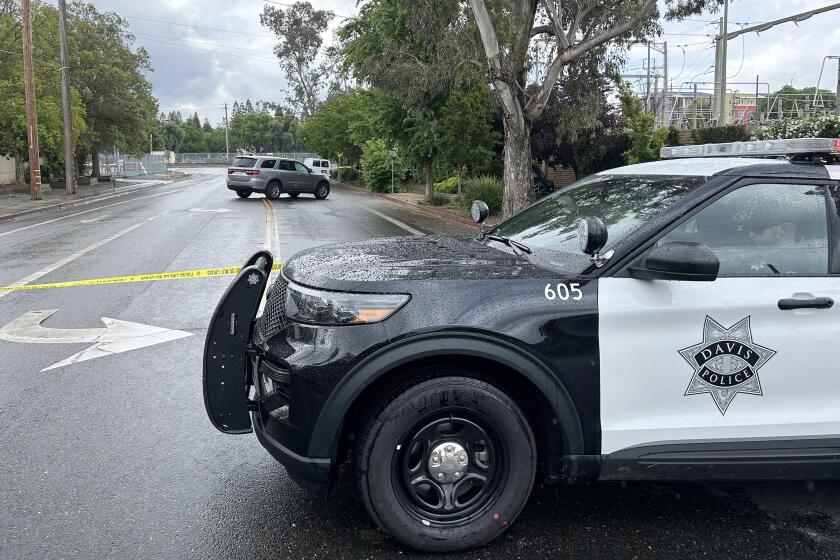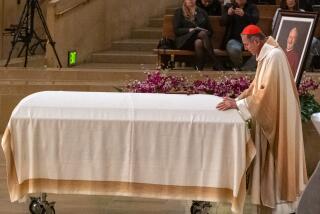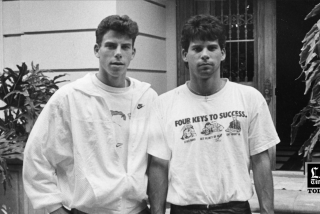Court-appointed doctor says alleged Davis serial stabber not competent to stand trial
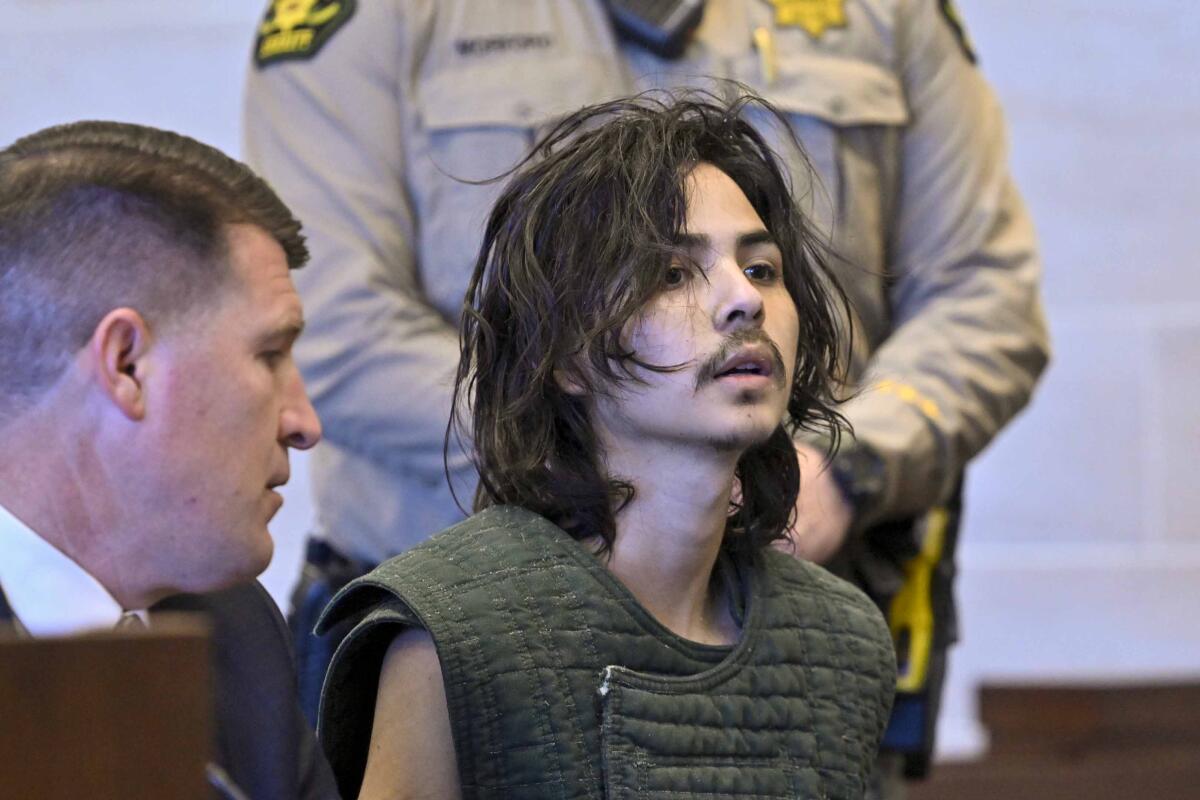
A court-appointed doctor has determined that Carlos Reales Dominguez, a former UC Davis student charged with killing two men and wounding a woman in a string of stabbings that shocked the quiet college town, is not mentally competent to stand trial for those crimes.
Yolo County Superior Court Judge Samuel McAdam announced the finding during a court hearing Tuesday. Prosecutors in the case took issue with the finding and requested a jury trial on the question of Dominguez’s competency, the Davis Enterprise reported. McAdam set the hearing for July 24.
“I want to apologize and say I’m guilty,” Dominguez, 21, said in court Tuesday before his public defender, Dan Hutchinson, asked for a brief recess. McAdam ordered that the confession be struck from the record.
Dominguez is charged in a series of seemingly random stabbings carried out over a period of days in late April and early May. Two of the attacks occurred in local parks, casting a pall over a city that celebrates its green space, youth sports and outdoor markets. Dominguez pleaded not guilty at his May 5 arraignment.
Dominguez was first detained on May 3. Police stopped him near the scene of one of the killings after several Davis residents called police to say he matched a description provided by witnesses to two of the attacks.
The first attack was discovered April 27, when authorities found the bloodied body of 50-year-old David Henry Breaux, a Stanford University graduate who chose to live outdoors and often spent nights in Davis’ leafy Central Park. Breaux had been stabbed to death on a bench where he slept.
The brutal stabbings in Davis place a spotlight on how families cope with grievous loss and the complexities of human compassion.
Two days later, Karim Abou Najm, 20, a UC Davis senior and Davis High School graduate, was fatally stabbed in Sycamore Park as he biked home from a university event. A neighbor heard sounds of distress and came to Najm’s aid but wasn’t able to save him.
Days later, a woman in her 60s was attacked as she slept at a homeless encampment near the city’s downtown. She was alone in her tent when her assailant slashed the canvas, reached in and stabbed her repeatedly. She was hospitalized but survived.
When police detained Dominguez, they said they found a large “hunting-style knife” in his backpack. Davis Police Chief Darren Pytel said investigators spoke with Dominguez for hours before arresting him for all three crimes.
After the arrest, UC Davis officials said that Dominguez had been “separated” from the school for poor academic performance less than two days before the violence began.
Dominguez, who came to the U.S. from El Salvador as an unaccompanied minor in 2009, was an accomplished student and athlete at Castlemont High School in Oakland. He graduated in 2020 and enrolled at UC Davis.
After his arrest, his father expressed shock in a brief phone interview with The Times: “He was so excited to go to Davis. I don’t understand how this could happen,” the father said.
In Davis, Calif., a town that usually bustles with bikers and joggers on almost every street and path, its parks bursting with the sights and sounds of youth sports, city life is suddenly eerily quiet after a string of stabbings.
The violence cast a chill over life in small-town Davis. People were afraid to go out at night, and businesses closed their doors early. Community members openly mourned the deaths of two gentle and well-loved residents.
After the hearing Tuesday, Abou Najm’s mother, Nadine Yehya, told the Davis Enterprise that she “couldn’t stop myself from crying” when she heard Dominguez’s confession in the courtroom. She and her husband, Majdi Abou Najm, have dedicated themselves to efforts to honor their son’s life, including an initiative for research into mental health and better interventions to help people before they commit terrible acts. On Sunday, the family attended what would have been Abou Najm’s college graduation ceremony.
More to Read
Sign up for Essential California
The most important California stories and recommendations in your inbox every morning.
You may occasionally receive promotional content from the Los Angeles Times.
